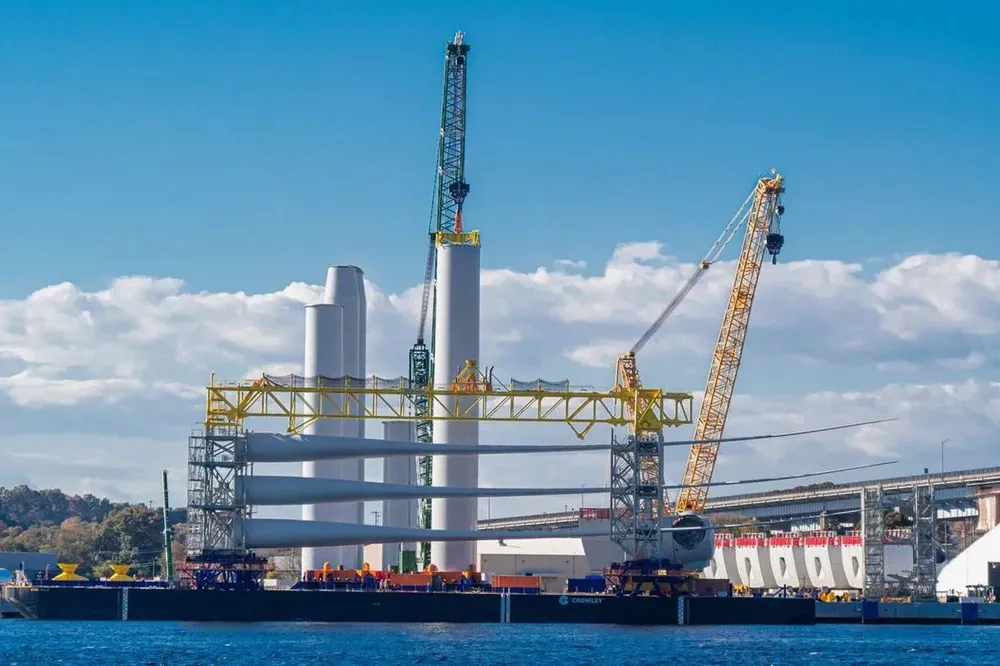Revolution Wind could tank former partner Eversource's credit rating: Fitch
Orsted’s former partner still on hook for project costs despite selling its stake a year ago, landing it on downgrade watch list

Cost overruns caused by the Trump administration’s stop-work order against Revolution Wind threaten Eversource Energy’s credit rating despite the Boston-based utility exiting the project more than a year ago, Fitch Ratings said.
Eversource sold its half-stake in the Orsted-led project (along with South Fork Wind) to Blackrock’s Global Infrastructure Partners (GIP) last September for $1.1bn.
Trump’s order “could meaningfully delay construction, causing large cost overruns or abandonment,” Fitch said in a note announcing why it has put the utility on its Rating Watch Negative (RWN).
In a “worst-case scenario”, Fitch said this could trigger a one-notch credit rating downgrade “if costs are not funded in a credit supportive manner.”
A prompt resolution, however, would lead Fitch to remove the company from its RWN list.
Fitch along with Moody's and S&P rate the creditworthiness of global companies, governments, and financial instruments.
The RWN signals that Fitch may downgrade Eversource from its BBB rating, while Moody’s view is equally dim, giving Eversource a Baa2 with negative outlook. S&P sees it at BBB+ and stable.
Revolution stop-work
The stop-work order, already in its fourth week, brought the 80% completed, $5bn project in the Massachusetts wind energy area to a screeching halt.
The project's power is being split, with 304MW to Connecticut and 400MW to Rhode Island, and is contracted to start operating by the end of 2026.
As Fitch noted, in the sale terms, Eversource agreed to “equal sharing of capex cost overruns for the first $240m with GIP”.
If the project is abandoned, Eversource “must make GIP whole for the purchase price of Revolution, other expenditures, and a 6.5% return on those amounts.”
Eversource “would also be responsible for decommissioning costs”, Fitch said.
Orsted’s suit is in the Washington, DC federal district court, and if successful, may result in work resuming, “limiting cost overruns” and safeguard the energy firm from a ratings hit.
But with strident local opposition and hostile litigation, Revolution “is likely to remain subject to continued judicial review and uncertainty,” Fitch added.
Eversource sold its remaining stake in Sunrise Wind, the last of its Orsted joint venture projects, in July 2024 to the Danish developer and has now exited offshore wind, “a credit positive,” according to Fitch.
Eversource had already recorded some $360m of liabilities at the time of Revolution sale, reflecting spiralling inflation and delays.
“Further cost overruns, delays or abandonment could result in additional costs,” Fitch said.
Despite the gloom, Fitch said it “expects any additional funding needs will be financed in a credit supportive manner.”
President Donald Trump considers wind and solar a “green new scam”, but holds particular disdain for offshore wind, with multiple orders aimed at killing the sector.